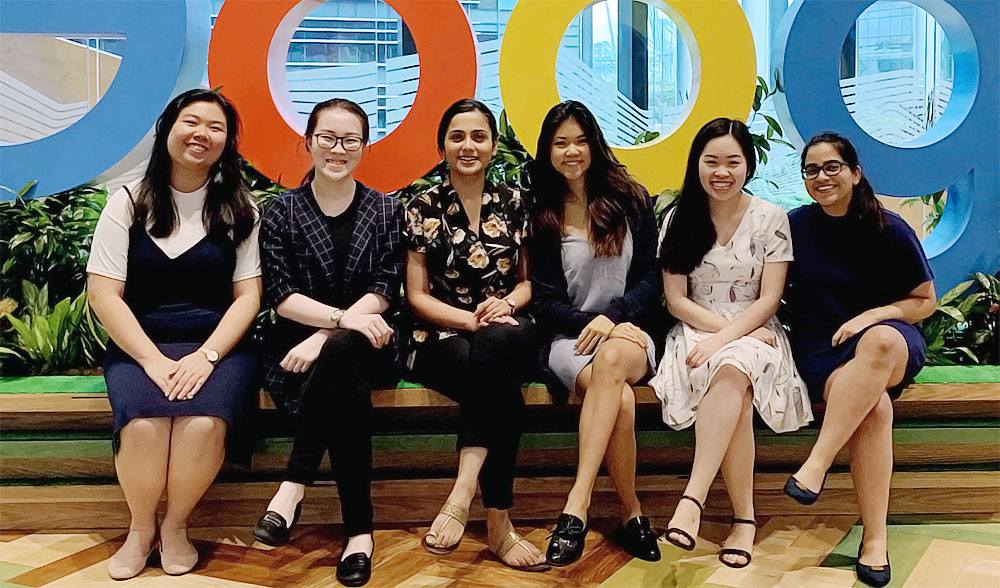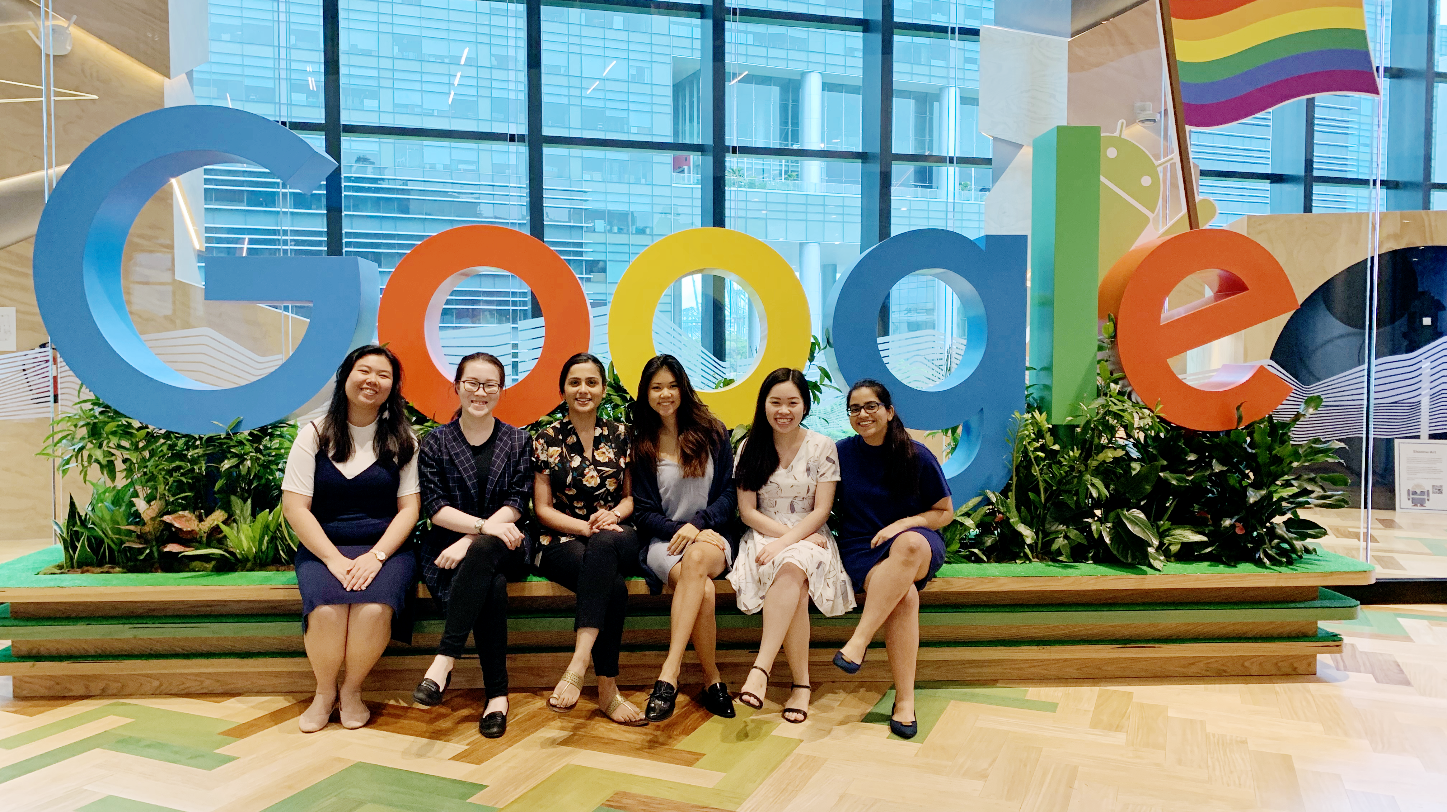Meenal joined Google in 2018 as an APAC Staffing Channels Specialist. She is responsible for finding and attracting talent through various ‘channels’ which range from sourcing passive candidates to referrals and online applicants. Prior to that, she worked as a Consultant at Page Personnel after doing an internship with the company. She is currently a New Business Strategist, Google Customer Solutions – APAC.
Q: Do you have a tagline that best represents you?
The tagline that best represents me is “Always competing with myself.“ One needs to have a very strong growth mindset for consistent self-development. Rather than competing with others, compete with yourself and as long as you’re growing and progressing, you’re on the right track.
Q: Could you share a bit about your first role in Google?
I was a Staffing Channels Specialist, APAC. This involves understanding the various active roles at Google and sourcing for relevant candidates through various ‘channels’ such as direct applicants, employee referrals, LinkedIn and through our database. I also speak to potential candidates to assess their fitment for the role and prepare them for the interview process. In short, I was a ‘talent scout’ of sorts.
A day in my job includes a variety of tasks. Google covers different markets and teams, and their methods of sourcing for the ideal candidates are rather different.
Firstly, I will speak to the hiring teams to understand their role and how they contribute to the organisation. I’ll also find out what they’re looking for in the new addition to their team.
Following that, I will look at both internal and external data to research the best way to find a candidate that fulfils their needs.
Next, I will speak to different candidates and understand their interests and future plans. We don’t hire just for the role – we also hire for the company and for the long term. If they are a good fit, I will prepare them for the interviews by walking them through the process and coaching them on the attributes they will be assessed on.
Q: Can you tell us about how your career journey as an intern in Page Personnel to your role in Google?
I transitioned from a Human Resource Intern (at Page Personnel) to a full-time Associate Consultant within the same company, and then to Google as a Staffing Channels Specialist. As an intern, I made a conscious effort to put in my 100% to learn, perform my tasks and showcase my leadership skills. That helped to display my potential and commitment to the company. Luckily, I was offered a full-time role before graduation. Transitioning from an intern to full-time Associate Consultant was relatively easy as I knew my colleagues and my job well, but there were definitely some difficulties along the way. As a full-time staff, you have more responsibilities and stricter timelines.
Google reached out to me, but I did not get a position on my first try. I only got offered another role that I interviewed for a few months later. The transition from an agency to in-house, was not easy. The culture in Google is more team-oriented, collaborative and you can decide your own pace. Before entering Google, I never thought about working in the company as Google seemed large and intimidating to an outsider like me.

Meenal Khare (third from left)
New Business Strategist, Google Customer Solutions – APAC at Google
Bachelor of Business Administration - Marketing (2015)
Q: Despite taking Marketing as a specialisation, you took up Human Resource Management (HR) internships. Did you always know you were interested in the HR field? Do you regret your choice of specialisation?
I did not expect myself to be in the HR field, When I was in NUS, I was not sure about which industry I wanted to pursue my career in. Initially, I was more interested in HR, but after taking a few modules in Year 1, I thought Marketing was interesting and I wanted to specialise in it to learn more about it.
Despite being in recruitment, I do not regret specialising in Marketing as there were various learning points for me. Other than the actual course content such as Finance, Accounting, and Economics, NUS Business School trains us on practical and real skill sets that are beneficial in the working environment. NUS has various avenues to help students grow and develop. Our curriculum includes group projects, which train students to work in a team with people having different perspectives. These group projects prepared me for the working environment, as I learnt to partner with different people, double up on tasks and manage my time well.
Q: Was there anything you would have done differently while studying in NUS?
In NUS, there was so much happening on the campus. I feel that I was too focused on my grades, studying for exams and working on projects. I could have cherished the opportunity and participated more clubs, hackathons and events. These are equally enriching activities that can help you grow.
If I could turn back the clock, I would also connect with more people by going for industry talks. It is extremely helpful to speak to experienced professionals as there is so much important information that they can share. By connecting with them, you can learn from their journey and the challenges they faced along the way.
Self reflection is also extremely important Think about the things you have done in the past and how can you improve them in the future. Reflect on the things that worked well (or didn’t) for you. Understand yourself better and figure out the career path you want to pursue.
One needs to have a very strong growth mindset for consistent self-development. Rather than competing with others, compete with yourself and as long as you’re growing and progressing, you’re on the right track.
Q: Do you have any advice to students who wish to join Google? How can an applicant stand out (internship/full-time)?
In Google, we do not judge applicants by grades. Rather, we look at a combination of their skill sets, experience and achievements.
Firstly, reflect on your past experiences, such as projects, studies, and activities. Understand your passion, area of improvements, and interests. Next, showcase these aspects on your CV, which is a reflection of your strengths and interests. Doing this will also prepare you for your interview as you can better match your abilities to the role.
There is also a wealth of resources available on Google’s website that will help you navigate and prepare for the interviews. Interviewing like any other skill requires practice. As you go for different interviews, try reflecting on what you did well and where you could have done better. Practice on your own so you can be more comfortable in a high pressure situation.
Google assesses candidates on their problem solving ability, leadership skills, domain expertise, and their ability to collaborate and thrive in an ambiguous environment. Once you have reflected on your past experience as mentioned earlier, prepare a few examples from your past that will help display each of these attributes.
Q: Any there any other pieces of advice you would like to share with our students?
No matter how hard it can be, always have a growth and motivated mindset. I was never a straight A student nor a Dean’s Lister yet I always tried to do better with each semester. As long as you are growing and improving, you are already doing great..
As newcomers to the industry, do not hesitate to express your ideas or voice your opinions. This will build your self confidence and allow you to add greater value to the task or situation at hand.
Lastly, be willing to step out of your comfort zone and take risks. You may face challenges but you will learn and grow tremendously along the way.




